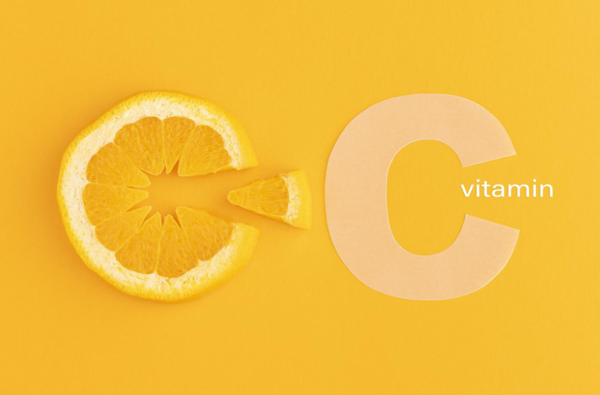They say, “you are what you eat.” But it should be “you are what you can digest”, – as the latter pretty much reflects your overall health. And with a plethora of food options out there and limited dietary control, you are likely to fall prey to a number of digestive problems, such as constipation, gas, and diarrhea. In this article, let’s explore the best foods that can improve your digestion considerably.
Why Is Digestion Important?
Digestion is vital for breaking down food particles into nutrients, which the body then utilizes for growth, sustainability, cell repair, and energy. This humble and delicate process considers our dietary intake, hormones, lifestyle, and any pre-existing medical conditions into account. After completing your meals, thorough digestion will ensure that your belly is safe from any soreness or bloating and give you good physical and mental health. With good digestion, you’ll be able to say bye-bye to acne, sleeping problems, or body pains.
Foods for Digestion
A proper and well-balanced diet will help with digestion and get rid of cramping, bloating, acidity, gas, constipation, and other serious problems. This is why the most effective way to improve digestive health is to have foods rich in dietary fiber that keeps you full for hours. Unhealthy habits such as excessive smoking and drinking, eating junk food, getting improper sleep, and having a diet that lacks essential nutrients are hazardous to your digestive health. So, without further delay, let’s look at some of the foods to eat that will help improve your digestion.
1. Prebiotics
Prebiotics are classified as the non-digestible food ingredients that ideally affect the host by selectively stimulating the growth and activity of one or many bacteria present in the colon. So, for a healthy stomach and gut, you can include foods like raw garlic, banana, leeks, and whole grains in your diet, as these are the best prebiotic foods available at your disposal.
2. Probiotics
Foods that come under probiotics strive consistently to keep your gut running smoothly and effectively. And you will find probiotics present in different types of fermented foods and supplements that prevent and ameliorate bowel diseases by improving the immune system. So, if you are trying to improve your digestive health and stomach efficiency, a bowl of yogurt is an excellent place to start with.
Probiotics replenish healthy bacteria in your tummy, by improving your nutrient uptake and eliminating harmful bacteria and pathogens that can harm your digestive system.
3. Herbal Teas and Drinks
You often find people struggling with heartburn, constipation, or gas after finishing drinks with caffeine, such as colas and coffee. Fizzy drinks boost acids in the stomach, leading to chest burns among some people. These are red flags that your digestive health has gone for a toss, and you need to act on it, which is why you should choose drinks that are not carbonated and caffeinated, such as herbal teas, like green tea, black tea, or chamomile. One cup of herbal tea will definitely help with digestion and eliminate bouts of constipation, cramping and other digestive issues.
4. Beans and Legumes
One of the most essential products in good food digestion is dietary fiber. And when one thinks of foods rich in dietary fiber, one of the most common foods that come in mind are beans and legumes. They are the perfect fiber-rich, low-fat food that serves roughly about 19 grams per cup. Many may worry about experiencing flatulence after consuming high-fiber foods, but research shows that people had less gas than expected when they increased their black-eyed beans consumption. They also don’t cause a spike in blood sugar levels as they take longer to digest and keep you satiated.
And with addition to dried beans and legumes, you can even consume peas and lentils, whole grains, artichoke, raspberries etc., among other fruits and veggies for rich digestive health.
Takeaway
While these are some of the best examples for improving your digestion, you can also try out Wellbeing Nutrition’s Probiotic + Prebiotic. It facilitates the smooth functioning of your digestive system by neutralizing toxins, improving metabolism, and helping prevent any gut-related issues.
However, remember that excess use of anything leads to its abuse. That’s why ensure that you drink plenty of water while consuming healthy foods, some of which are as listed above. If the problem persists, please consult a doctor immediately to avoid further discomfort.
References:
- Davani-Davari D, Negahdaripour M, Karimzadeh I, et al. Prebiotics: Definition, Types, Sources, Mechanisms, and Clinical Applications. Foods. 2019;8(3):92. Published 2019 Mar 9. doi:10.3390/foods8030092. (https://www.ncbi.nlm.nih.gov/pmc/articles/PMC6463098/)
- Shi LH, Balakrishnan K, Thiagarajah K, Mohd Ismail NI, Yin OS. Beneficial Properties of Probiotics. Trop Life Sci Res. 2016;27(2):73-90. doi:10.21315/tlsr2016.27.2.6. (https://www.ncbi.nlm.nih.gov/pmc/articles/PMC5031164/)
- Bond T, Derbyshire E. Tea Compounds and the Gut Microbiome: Findings from Trials and Mechanistic Studies. Nutrients. 2019;11(10):2364. Published 2019 Oct 3. doi:10.3390/nu11102364. (https://www.ncbi.nlm.nih.gov/pmc/articles/PMC6835862/)
- Winham DM, Hutchins AM. Perceptions of flatulence from bean consumption among adults in 3 feeding studies. Nutr J. 2011;10:128. Published 2011 Nov 21. doi:10.1186/1475-2891-10-128. (https://www.ncbi.nlm.nih.gov/pmc/articles/PMC3228670/)
- The Digestive System and How It Works, National Institute of Diabetes and Digestive and Kidney Diseases. (https://www.niddk.nih.gov/-/media/Files/Digestive-Diseases/Digestive_System_508.pdf)

























